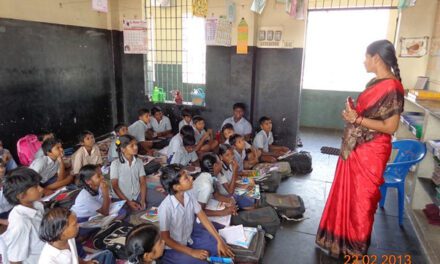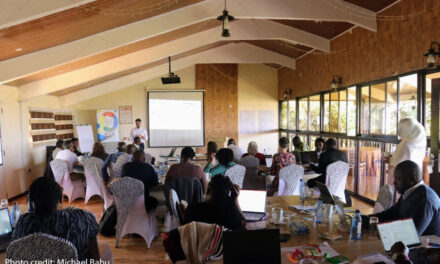This article is by the theme convenors of one of six 2023 UKFIET conference themes, ‘Planning, finance, technology and data’: Sally Rosscornes, UNESCO International Institute for Educational Planning, and Ellen Smith, Aga Khan Foundation. The convenors have gathered some highlights from conference sessions relating to their theme.
After powerful keynote presentations setting the scene as to the landscape of education systems and global discourse related to social and environmental justice, we delved into a rich array of sessions on topics related to planning, finance, technology and data, both at the online day as well as at the in-person conference.
Under the ed-tech banner, there were many compelling presentations highlighting examples such as educational technology-enabled teacher professional development interventions, the rapid adoption of technology during Covid lockdowns, the novel use of machine learning algorithms to predict higher education student dropout, the role of ed-tech in the growing shadow education phenomenon and the role of parental engagement to support children’s learning using ed-tech.
Tying in nicely with the overall conference theme of ‘Education for Social and Environmental Justice’, a question arose as to what should be valued most when assessing whether to implement ed-tech (or indeed any education intervention), especially when weighing up priorities between impact on learning outcomes, value for money and environmental impact, for example. Further to this, who should get to decide? We also heard about the challenge of implementing ed-tech well, the inherent risk of disruption to education when continually chasing the latest developments in technology, and more broadly about the divergence between evidence and practice on ed-tech and teacher professional development.
In the areas of planning, finance and sustainability, we heard results fed back from large initiatives such as the Girls’ Education Challenge, and we also dug further into the challenges of scaling promising education innovations to specifically address equity. What was particularly salient and cross-cutting across this sub-theme were issues raised related to data – including an outright lack of data, a lack of disaggregated data on teacher and learners, an overabundance of unanalysed data, and data duplication – and the implicit challenges of then using data to understand the impact of education policies and programmes on social and environmental justice. At the micro-level, there were some excellent examples shared of how data is being used to better understand school dropout so that early action can be taken to prevent it, and how nuanced learning outcome data can be used to improve equity of education provision.
Looking at the global level, we heard critiques of global monitoring systems to track progress towards the SDGs, particularly around foundational learning for poor and affluent students, and towards SDG 4.7 on education for sustainable development. There was a clear call for improvement in this area through better communication and alignment across international datasets, especially in the definitions of socio-economic factors. In terms of meeting commitments on equity and inclusion, key challenges were also highlighted around supporting learners with different kinds of disabilities, often due to difficulty gathering accurate data, especially in crisis settings and related to mental health and non-visible disabilities. Ed-tech was again highlighted in this discussion as being a lever that has the potential to improve equity by levelling the playing field but conversely can exacerbate inequality if not thought through. As such it needs to be ‘handled with care.’
With many thanks to all the speakers and authors who contributed to sharing critical insights under this sub-theme.





